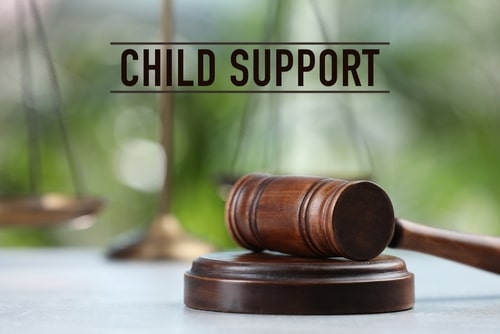Recent Blog Posts
Is Child Custody Guaranteed in Wisconsin?
 Regarding child custody, Wisconsin is a best interest state, meaning that parents are awarded joint or sole custody according to the child's best interests. One parent is not automatically guaranteed child custody over another. However, there are some things a judge will look at that could swing the decision in one parent's favor. For child custody and divorce cases, it is in a parent's best interest to consult an experienced attorney.
Regarding child custody, Wisconsin is a best interest state, meaning that parents are awarded joint or sole custody according to the child's best interests. One parent is not automatically guaranteed child custody over another. However, there are some things a judge will look at that could swing the decision in one parent's favor. For child custody and divorce cases, it is in a parent's best interest to consult an experienced attorney.
What is Child Custody?
Child custody in Wisconsin refers to the guardianship of a child or children by one or both parents. The guardianship covers legal decision-making over a child or children and placement, where a child or children will live full-time. The parent with whom a child lives primarily is considered the custodial parent. The non-custodial parent may receive child visitation rights to access their child or children to continue fostering a parent-child relationship. Paternity must have been established for the father to obtain child custody rights.
Firearm Possession with A Prior Criminal Record
 Felons are not allowed to possess firearms in the state of Wisconsin. The same can be said for individuals convicted of domestic violence. A person who fits either description and is found to be in possession of a firearm can face steep penalties. For further details on what is prohibited to those with prior convictions, consult an experienced criminal defense attorney.
Felons are not allowed to possess firearms in the state of Wisconsin. The same can be said for individuals convicted of domestic violence. A person who fits either description and is found to be in possession of a firearm can face steep penalties. For further details on what is prohibited to those with prior convictions, consult an experienced criminal defense attorney.
Are Felons Convicted Outside of Wisconsin Still Eligible to Possess a Firearm?
The answer is no. Any crime committed out of state that would still be held as a felony conviction in the state of Wisconsin will still see the convicted person as a firearm-prohibited individual. The same rule applies to felons in states where possessing a firearm is still legal.
How to Collect Owed Child Support in Wisconsin
 Your children deserve the best care that you can give them. But how will you be able to provide them with what they need when a non-custodial parent fails to pay court-ordered child support? There are a few ways to enforce court-ordered child support in Wisconsin. A lawyer with experience in child support legal matters can provide invaluable step-by-step guidance toward helping you acquire support payments owed.
Your children deserve the best care that you can give them. But how will you be able to provide them with what they need when a non-custodial parent fails to pay court-ordered child support? There are a few ways to enforce court-ordered child support in Wisconsin. A lawyer with experience in child support legal matters can provide invaluable step-by-step guidance toward helping you acquire support payments owed.
Ensuring Child Support is Established
A friendly, informal agreement between parents on child support is unenforceable by state agencies and the court. Make sure to go through the court to make a formal child support agreement so that the authorities can enforce it should the non-custodial parent ever become delinquent or a "deadbeat parent." Even if parents cannot agree on child support payments, they must go to court to receive an enforceable order. A judge is the only one who can set an enforceable amount of child support and set the schedule for payments.
Arrested Under Suspicion of Domestic Abuse
 Police are required to make an arrest if, while investigating a disturbance call, they find reasonable evidence to support domestic battery. They must also believe that the abuse is likely to reoccur, have physical evidence of abuse as exhibited on the accuser, or suspect the defendant is the predominant aggressor in the situation. In these circumstances, it is beneficial to seek out legal assistance immediately. A lawyer who has proven capable in domestic abuse defense cases can help defend your rights in a court of law.
Police are required to make an arrest if, while investigating a disturbance call, they find reasonable evidence to support domestic battery. They must also believe that the abuse is likely to reoccur, have physical evidence of abuse as exhibited on the accuser, or suspect the defendant is the predominant aggressor in the situation. In these circumstances, it is beneficial to seek out legal assistance immediately. A lawyer who has proven capable in domestic abuse defense cases can help defend your rights in a court of law.
How Can Police Believe I Am the Predominant Aggressor?
There are six determinations that police must consider to qualify you as the predominant aggressor in domestic abuse incidents:
How Property Division Works in a Wisconsin Divorce
 Wisconsin is a community state, which means the court is presumed to divide all marital property equally between spouses in a divorce. However, not all property is subject to equal distribution, which is the case for individual property. A knowledgeable attorney can help you decipher which is which while also going to bat for you in court if necessary.
Wisconsin is a community state, which means the court is presumed to divide all marital property equally between spouses in a divorce. However, not all property is subject to equal distribution, which is the case for individual property. A knowledgeable attorney can help you decipher which is which while also going to bat for you in court if necessary.
Marital Property vs. Individual Property
Marital property is considered to be all assets acquired during a marriage. The exception to this is gifts or inheritance bequeathed to one spouse. Marital property is subject to a 50/50 division in the event of divorce, regardless of whose name may be on the title.
Individual property, also referred to as separate property, is any asset obtained before a marriage that has not been commingled with marital property. Gifts or inheritance left to a single spouse are also considered individual property. Of course, if the gifts or inheritance are commingled with marital property, they can then also be seen as marital property in court.
The Difference Between OWI and DUI
 Getting behind the wheel of a motor vehicle while intoxicated is very likely to affect your driving abilities. Not to mention if caught, you could be looking at charges that could see your license suspended as well as potential jail time. The charges received will usually fall under either driving under the influence (DUI) or operating while intoxicated (OWI).
Getting behind the wheel of a motor vehicle while intoxicated is very likely to affect your driving abilities. Not to mention if caught, you could be looking at charges that could see your license suspended as well as potential jail time. The charges received will usually fall under either driving under the influence (DUI) or operating while intoxicated (OWI).
Wisconsin laws carry serious penalties and should be taken just as seriously. To help fight any charges being lobbied against you, it is recommended you consult a lawyer experienced in those charges willing to go to war to defend your rights.
OWI vs DUI
The primary difference between these normally interchangeable terms is that an OWI can be received for sitting in the driver’s seat of a non-moving vehicle. This contrasts with a DUI in that a person must actually have the vehicle in motion to be charged.
My Ex is Withholding Child Visitation
 All parents have a right to visitation with their children so long as it does not pose a physical, mental, or emotional threat. An ex-spouse who is withholding a child from visiting the other parent is subject to a felony charge in the state of Wisconsin.
All parents have a right to visitation with their children so long as it does not pose a physical, mental, or emotional threat. An ex-spouse who is withholding a child from visiting the other parent is subject to a felony charge in the state of Wisconsin.
When dealing with an ex-spouse who is hellbent on denying you your child visitation rights, it is important to consult with an attorney. An attorney who possesses solid advice and a compassionate stance is invaluable to your cause.
What is Child Visitation?
Visitation is the arrangement where the non-custodial parent gets to spend time with their child. The non-custodial parent is the parent who was not granted physical placement of the child, which is where the child lives for the majority of the time. Shared placement is also possible in Wisconsin, which allows children to spend at least 25 percent of their time with each parent.
What to Do When Facing Armed Robbery Charges in Wisconsin
 The use of a dangerous weapon to commit theft carries a lengthy sentence if convicted. Armed robbery in Wisconsin is punishable by up to 40 years in prison. You must understand the law and your rights when being accused of armed robbery. A skilled criminal defense attorney can provide guidance and if necessary represent you in a court of law.
The use of a dangerous weapon to commit theft carries a lengthy sentence if convicted. Armed robbery in Wisconsin is punishable by up to 40 years in prison. You must understand the law and your rights when being accused of armed robbery. A skilled criminal defense attorney can provide guidance and if necessary represent you in a court of law.
What is Armed Robbery?
Armed robbery is defined as the theft of property from another person by force or threat of force while using or threatening to use a dangerous weapon. A dangerous weapon is defined as any object that is capable of causing serious bodily injury or death. This includes guns, knives, clubs, and other objects that could be used to harm someone.
What Should I Consider When Dating During a Divorce?
 Dating during a divorce can be a complicated matter, both emotionally and legally. This can be especially true for divorcing couples with children. While there are no laws in Wisconsin that specifically prohibit dating during a divorce, there are a few things you should consider before starting a new relationship.
Dating during a divorce can be a complicated matter, both emotionally and legally. This can be especially true for divorcing couples with children. While there are no laws in Wisconsin that specifically prohibit dating during a divorce, there are a few things you should consider before starting a new relationship.
It is important to weigh the pros and cons carefully before starting a new relationship. If you do decide to date, there are some things you can do to minimize the potential risks. It is also important to find a good lawyer to represent you during your divorce.
The Emotional Toll
You should be emotionally and psychologically ready to engage in a new relationship before doing so. The grief of a failed marriage and the impact it can have on your children should be a consideration. Young children may become confused or upset by your new relationship.
What is Theft by Fraud?
 Theft by fraud is a crime in Wisconsin that occurs when someone intentionally deceives another person to obtain their property or services. The deception can be made through words, actions, or a combination of both.
Theft by fraud is a crime in Wisconsin that occurs when someone intentionally deceives another person to obtain their property or services. The deception can be made through words, actions, or a combination of both.
If you have been charged with fraud, talk to a lawyer to see what your defense options are. The prosecution might not have enough evidence to prove that you committed fraud. You could also argue that you were entrapped or that you did not intend to defraud the victim.
How Can I Be Convicted of Theft by Fraud?
To be convicted of theft by fraud, the prosecution must prove the following elements beyond a reasonable doubt:
-
The defendant intentionally deceived the victim
-
The victim reasonably relied on the deception









 262-232-6699
262-232-6699





